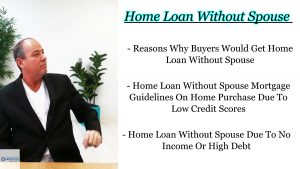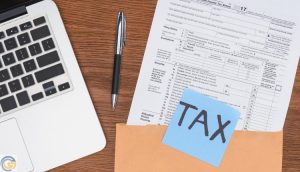This guide will cover how you know when you are ready to buy a home. When people hear the words “American dream,” they often think I am now ready to buy a home—not answering to a landlord or feeling like every rent payment is flushing money away. The mortgage crisis a decade ago made it clear that buying a home does not always lead to a happy ending. Most people’s dream is to own their homes. However, buying a home is a huge decision and involves a lot of consideration for the homebuyer and their family, says Ronda Butts, a dually licensed realtor and loan officer at Gustan Cho Associates.
After deciding you are ready to buy a home, the next dilemma is choosing where to buy a home. Deciding where to buy your house is a complex and personal decision that requires careful research and evaluation. You need to consider your budget, location, and future and weigh the pros and cons of each option. You must also be realistic, flexible, and open-minded, as you may need help finding a home meeting your criteria.
The most important thing is finding a home you love, suit your needs, and can afford. A home is more than just a place to live; it’s a place to grow, create memories, and enjoy life. So how do you know if now is the right time to buy a home? Understanding the risks and rewards and asking yourself some tough questions about your goals and resources. This article covers the pros and cons of owning a home and helps you determine if now is the right time to buy one.
Find out right now if you qualify to buy a home.
Am I Ready To Buy a Home
The decision to buy or rent is about more than warm fuzzy feelings, although those are important. It’s about numbers, too. Depending on where you live and what the economy is doing, renting can be more or less expensive than buying. And when you have to come up with the first and last month’s rent plus a big deposit, renting can cost you more upfront than buying with a low down payment mortgage. Or a mortgage with down payment assistance.
Is It Important To Ready To Buy a Home Before Buying a House
How Do I Make Sure I Am Ready To Buy a Home
Homeowners Can Expense Mortgage Interest Expense
Home mortgage interest is usually tax deductible for people who itemize their deductions. So are mortgage insurance and property tax payments. You can even defer most gains when you sell your home. The Congressional Research Service found that the tax benefits of homeownership are worth, on average, $1,772 per year.
You Can Kiss Your Landlord Goodbye
If you rent, you may not be able to change the color of the walls or carpets, bring a pet into your family, wash your car in the driveway, or buy your kids a swing set. Some communities don’t allow renters at all – if you want to live there, you have to buy.
You can’t do that by renting. While average rent increases per year run 6% to 8%, this can vary wildly by area. Chicago area rents for example, increased on average by over 33% in 2023!
Children of homeowners are 59% more likely to become homeowners, according to Habitat for Humanity. They are also 25% more likely to graduate from high school, 116% more likely to graduate from college, and exhibit fewer behavioral problems. There are many good reasons to buy a home. But that doesn’t make it right for everyone, or at least not right for everyone all the time.
Disadvantages of Buying a Home
Not everyone can buy a home. And even if you can, it doesn’t necessarily mean you should. Here are the biggest disadvantages of homeownership. We know; shows like Flip This House make dealing in property look easy and profitable. Ethel Matthews, a dually licensed realtor and loan officer, shares her opinions about the drawbacks of becoming a homeowner versus a renter:
Renting means having the freedom to get up and go — for a new job, for the man or woman of your dreams, to bicycle around the world – that owning doesn’t offer. If you rent and your newest neighbor decides to relive his youth with loud parties and racing pipes on his Harley, you can leave if it bothers you. If you own ear plugs may be in your future.
But in real life, buying and selling real estate involves lots of time and high costs — mortgage lender fees, real estate commissions, title and escrow services, and more. According to the Federal Reserve Bank, on average, closing costs for buyers come to 3.5 percent of the price of the home. Selling a home costs even more — seven to ten percent of the sales price! Real estate is probably not a good investment unless you plan to keep it for several years.
When Things Go Wrong, It’s Your Problem
When good appliances go bad, you get to stay home waiting for the plumber and write a painful check. If you buy a home with a beautiful yard, realize it won’t stay beautiful for long unless you devote your weekends to it or pay someone else to.
Your Home’s Value Could Decrease
As many found during the 2008 recession, home prices do not always appreciate. Your down payment could disappear if your home’s value erodes. You could find yourself owing more on the property than it’s worth. Buying a home means weighing the pros and cons and applying them to your circumstances.
QUIZ: Are You Ready to Buy a Home?
 These questions can help you see if homeownership is right for you.
These questions can help you see if homeownership is right for you.
Do you plan to remain in your location for at least five years?
Buying a home is generally not a great idea for rolling stones because real estate transactions involve expensive commissions, lender fees, and title charges. That can reverse a lot of wealth-building if you move frequently. However, homeownership might still be right if you plan to convert your residence to rental property when you leave.
Have you saved a down payment, closing costs, and an emergency fund?
A big savings account is not always required because first-timers often qualify for down payment assistance (DPA) and closing cost help. But if you have not been able to put money aside while renting, how will you handle the additional costs of homeownership, like repairs and maintenance? What if you experience an interruption in income or other financial emergencies? And if your monthly payment will increase, where will that extra money come from?
How handy are you around the house?
You don’t have to be a regular at Home Depot, but it helps. If not, you’ll be paying someone else to maintain your yard, make minor repairs and take care of upkeep like painting and window washing. You’ll need to budget for major repairs or purchase a home warranty.
Will You Be Okay With Less Disposable Income
Assuming that your monthly mortgage payment, property taxes, homeowners insurance, HOA dues (if applicable), and maintenance/repair budget exceeds your current rent, you’ll have less “fun money” after buying a home. To find out if you can handle it, “practice” for homeownership by subtracting your current rent from what you expect to spend on a home each month.
Put the monthly difference into savings and get used to living on less. Bonus: you’ll have extra money for your down payment and closing costs if you buy.
Put off your home purchase if you lack job security, health insurance, or marital stability. According to Northwestern University, the top causes of foreclosure in the US are medical bills, divorce, and job loss.
How to Choose Where to Buy When I Ready To Buy a Home
Buying a home is one of the most important decisions you will ever make. Not only will it affect your finances but also your lifestyle, your family, and your future.
That’s why choosing where to buy a home is not something you should take lightly. You want to find a place that suits your needs, preferences, and budget and will appreciate value over time.
But how do you choose where to buy a home? There are many factors to consider, and each one may have a different weight depending on your situation. Here are some of the most important factors that can help you narrow your location search and find the perfect home.
Am I Ready To Buy a Home, or Do I Need To Wait
The decision to buy (or not buy) a home is highly individual. Don’t do it because you think it’s a way to quick riches, all your friends are buying, or you’re worried about being priced out. What if you’re not sure how you feel? Try this exercise:
Think about all the pros and cons described above and the answers to those five questions. Next, close your eyes and imagine that the decision has been taken away from you — that you are prevented from buying a home. And check your gut — do you feel disappointed? Or are you relieved? There’s your answer.
You may also want to visit the schools and talk to the teachers and parents. Homeowners association: Some neighborhoods have a homeowners association (HOA) that sets rules and regulations for the residents and maintains the common areas and amenities. An HOA can help keep the neighborhood attractive and safe, but it also comes with fees and restrictions that may affect your budget and lifestyle. You may want to check the HOA documents before buying a home in such an area.
Am I Ready To Buy a Home Financially
The primary and most important aspect to take into account is your budget. Assess the amount you are capable of allocating towards a home purchase. This will determine the range of locations and types of homes you can look at. You want to avoid buying a home that will stretch your finances too thin or put you at risk of foreclosure.
To determine your budget, you must consider your income, expenses, savings, debt, and credit score. You must also factor in the costs of buying and owning a home, such as down payment, closing costs, mortgage payments, property taxes, insurance, maintenance, and utilities.
It is generally advisable to allocate 28% of your gross monthly income towards housing expenses and limit total debt payments to 36%. To determine your borrowing capacity and obtain pre-approved loan approval, you can utilize online calculators or seek guidance from a mortgage lender. Once you have a budget, you can look for homes that fit within it. You can use online tools or work with a real estate agent to look for homes by price range, location, size, features, and other criteria.
Location Consideration When You Are Ready To Buy a Home
The next factor to consider is the location of the home. Where do you want to live? This will depend on your lifestyle, preferences, and goals. One aspect of location that you may want to consider is proximity. How close do you want to be to your work, school, family, friends, shopping, entertainment, health care, and other amenities? Do you prefer a short commute or more space?
Do you want to walk, bike, drive, or use public transportation? What kind of neighborhood do you want to live in? Do you prefer urban, suburban, or rural settings? Do you want a quiet or lively area? Do you care about the crime rate, safety, noise level, cleanliness, and neighborhood appearance?
If you have children or plan to have them in the future, the quality of the school district may be a major factor in choosing where to buy a home. You may want to research the test scores, graduation rates, student-teacher ratios, curriculum, extracurricular activities, and reputation of the schools in the area.
Climate Considerations When Buying a House
The area’s climate is another factor to consider when choosing where to buy a home. Do you prefer warm or cold weather? Do you like seasons or constant sunshine? How do you feel about snow, rain, humidity, or wind?
The area’s climate will affect your comfort, health, and lifestyle. It will also affect the costs and maintenance of your home. If you live in a cold area, you may need to pay more for heating and insulation. If you live in a humid area, you may need to deal with mold and pests.
Research the area’s average temperatures, precipitation, and natural disasters before buying a home. You may also want to visit the area at different times of the year to get a feel for the weather. You may find that you love or hate the climate more than expected. The climate is a personal preference that can make a big difference in your happiness and satisfaction with your home. Choose an area that matches your ideal climate or that you can adapt to easily.
How Long Do You Intend to Living in Your New Home
The last factor to consider is the future of the home. How long do you plan to stay in the home? How will it fit your changing needs and goals? How will it appreciate over time? Buying a home is a long-term investment that requires planning. You don’t want to buy a home that will become too small or too big for your family in a few years. You also don’t want to buy a home that will lose value or become difficult to sell.
Resale of Your Home
One aspect of the future that you may want to consider is the home’s resale value. How much will your home be worth when you sell it? This will depend on the supply and demand of homes in the area, the condition and features of your home, and the market trends and economic conditions.
You may want to look for homes with high resale value potential based on location, quality, size, style, and upgrades. Research the marketability of the house when you would be selling. How easy will it be to sell your home when you decide to move? This will depend on the appeal and availability of your home to potential buyers.
You may want to look for highly marketable homes based on price, condition, features, and uniqueness. Flexibility is another concern you should take into consideration. How adaptable is your home to your changing needs and preferences? This will depend on the layout and design of your home and the possibility of making changes or additions. You may want to look for highly flexible homes based on their space, functionality, and potential.








